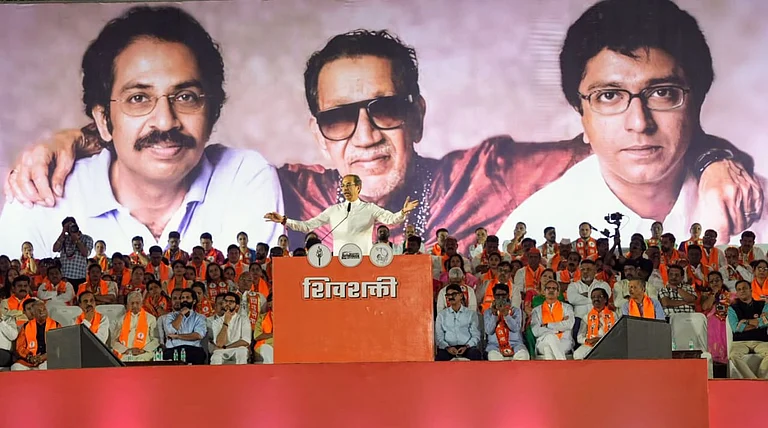In an era where globalization often overshadows local heritage, Kaalchakra: The Rise of Kalki by 17-year-old author Aaditya Sengupta Dhar has emerged as a literary beacon, drawing Indian youth back to their cultural and mythological roots. Published in January 2024 by Anecdote Publishing House, this young adult novel has been captivating readers with its seamless blend of ancient Indian mythology and contemporary adventure, earning widespread acclaim for its storytelling and cultural resonance. The novel, an Amazon bestseller, has racked up thousands of copies sold, and has not only entertained but also sparked a renewed appreciation for India’s rich heritage among young readers.
Set against a backdrop of cosmic upheaval—tsunamis in the Indian Ocean, mysterious lights in the Himalayas, and the awakening of the ancient evil Kali Asura—Kaalchakra follows two Mumbai teenagers, Abhay and Ira, who discover they are central to an ancient prophecy. Their journey to Mount Kailash, the abode of the gods, intertwines modern-day Mumbai with the timeless lore of Hindu mythology, particularly the prophecy of Kalki, the final avatar of Vishnu. This narrative fusion has struck a chord with Indian youth, who often navigate a world where Western influences dominate popular culture.
Aaditya, a Grade 12 student from Mumbai’s Ecole Mondiale World School, wrote Kaalchakra with a clear mission: to reconnect young readers with their cultural heritage. “I hope Kaalchakra entertains, but I also hope it raises consciousness among teens of our amazing heritage and culture,” he said in an interview. His goal resonates in the novel’s vivid depictions of Indian myths, from the cosmic wheel of time (Kaalchakra) to the divine battles that shape the protagonists’ destinies. Critics have praised this approach, with the prestigious Kirkus Reviews noting that “Spiritual ideology is woven into powerfully rich dialogue meant to motivate and uplift. An immersive mythological yarn with a YA twist.” Publishers Weekly praises Kaalchakra for “A deep engagement with demons both mythological and interior, and a rousing spiritualism. The characters burst with heart, and the storytelling is clear and exciting.”
By blending the allure of myth with the relatability of teenage protagonists, the novel not only entertains but also fosters a deeper appreciation for India’s cultural tapestry, ensuring that the wheel of time continues to turn in the hearts of its young readers. Many young readers have lauded its ability to make mythology accessible and relevant. One reviewer wrote, “Dhar’s storytelling makes you feel proud of our roots while keeping you hooked on a modern adventure.” Another highlighted the novel’s sensory prose, describing it as “a whirlwind of ancient prophecies and celestial clashes” that feels “like a love letter to Indian culture.”
Sagar Azad, CEO of Anecdote Publishing says, “We are proud to be associated with Kaalchakra and its mission of bringing Indian youth closer to our culture. It has been a huge success, and we have already reprinted the book given its brisk sales and popularity.” The novel’s impact extends beyond entertainment and commercial success. Aaditya was honoured with the 2024 Young Achievers’ Award by the India Achievers’ Forum, for his efforts to create a positive impact through his writing and the Rabindranath Tagore Memorial Prize for Literature in 2025.
The young author, however, is not sitting on his laurels. He has been continuing on his mission to connect today’s youth to our past. His Vedanomics column on BW Businessworld draws connections from ancient Indian thinking and philosophy to address modern policy challenges, while his podcast of the same name on Spotify has racked up two lakh streams, interviewing CXOs on how Indian values and thinking can shape a uniquely Indian approach to leadership.
For Indian youth, Aaditya’s efforts serve as a bridge between their modern lives and the ancient stories that have shaped their culture for millennia, helping ensure that while we march forward into a modern, globalised world, we do not forget our roots or where we are coming from.


























